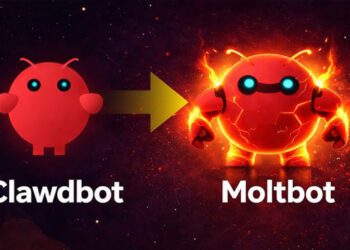Breakthrough machine learning model identifies cancer-driving mutations with superior precision, offering new hope for personalized treatment

In a significant advancement for cancer research and precision medicine, Google has unveiled DeepSomatic, an artificial intelligence tool that can identify cancer-related genetic mutations with remarkable accuracy, surpassing current methods used in clinical settings. Published in the prestigious journal Nature Biotechnology, this open-source AI model represents a major leap forward in understanding the genetic drivers of cancer and could fundamentally transform how doctors diagnose and treat the disease.
Cancer remains one of the most complex and challenging diseases facing modern medicine, claiming millions of lives worldwide each year. At its core, cancer is a genetic disease that begins when the cellular mechanisms controlling cell division malfunction. Finding the specific genetic mutations that drive a tumor’s growth has become essential for creating effective, targeted treatment plans that can improve patient outcomes and survival rates.
The Challenge of Cancer Genetics
The complexity of cancer genetics has long posed significant challenges for researchers and clinicians. While genome sequencing technology has advanced dramatically in recent years, enabling doctors to routinely sequence tumor cell genomes from biopsies, distinguishing real genetic variants from sequencing errors remains extraordinarily difficult. This is precisely where DeepSomatic’s artificial intelligence capabilities provide crucial assistance.
Most cancers are driven by what scientists call “somatic” variants genetic mutations acquired after birth rather than inherited “germline” variants passed down from parents. These somatic mutations can occur when environmental factors such as ultraviolet light damage DNA, or when random errors happen during the DNA replication process. When these variants alter normal cell behavior, they can trigger uncontrolled cell replication, driving cancer development and progression.
The difficulty in identifying somatic variants stems from the fact that they can exist at extremely low frequencies within tumor cells, sometimes at rates lower than the sequencing error rate itself. This makes it nearly impossible for traditional methods to reliably distinguish between actual cancer-causing mutations and technical artifacts from the sequencing process.
How DeepSomatic Works
DeepSomatic employs sophisticated convolutional neural networks to tackle this challenge head-on. In clinical settings, scientists typically sequence both tumor cells obtained from a biopsy and normal cells from the same patient. DeepSomatic analyzes the differences between these two samples, identifying variations present in tumor cells that aren’t inherited. These variations reveal what’s fueling the tumor’s growth and spread.
The model’s approach is innovative in its methodology. It converts raw genetic sequencing data from both tumor and normal samples into visual representations essentially images that capture various data points, including the sequencing data itself and its alignment along the chromosome. A convolutional neural network then analyzes these images to differentiate between three critical categories: the standard reference genome, the individual’s normal inherited variants, and cancer-causing somatic variants, all while filtering out sequencing errors that could lead to false conclusions.
The output is a comprehensive list of cancer-related mutations that clinicians can use to inform treatment decisions. Importantly, DeepSomatic can also operate in a “tumor-only” mode when normal cell samples are unavailable a situation that frequently occurs with blood cancers like leukemia. This versatility makes the tool applicable across a wide range of research and clinical scenarios, expanding its potential impact.
Training an AI for Precision
Creating an accurate AI model requires high-quality training data, and Google approached this challenge with characteristic thoroughness. Working in partnership with the UC Santa Cruz Genomics Institute and the National Cancer Institute, the team created a benchmark dataset called CASTLE. This dataset was built by sequencing tumor and normal cells from four breast cancer samples and two lung cancer samples.
These samples underwent analysis using three leading sequencing platforms to create a single, highly accurate reference dataset. By combining the outputs from multiple platforms and removing platform-specific errors, the researchers ensured that DeepSomatic would be trained on the most reliable data possible. The resulting dataset also reveals how even the same cancer type can exhibit vastly different mutational signatures information that can help predict how individual patients might respond to specific treatments.
Superior Performance Across Multiple Platforms

The results of DeepSomatic’s performance testing have been impressive by any measure. The AI models consistently outperformed other established methods across all three major sequencing platforms tested. The tool particularly excelled at identifying complex mutations called insertions and deletions, commonly referred to as “indels” in the scientific community.
For these challenging variants, DeepSomatic achieved a 90% F1-score on Illumina sequencing data, compared to just 80% for the next-best method a significant improvement that could translate to more accurate diagnoses and better treatment outcomes. The improvement was even more dramatic when analyzing Pacific Biosciences data, where DeepSomatic scored over 80% while the next-best tool managed less than 50%.
The AI’s capabilities extend to analyzing particularly challenging samples that have historically posed problems for genetic analysis. Testing included a breast cancer sample preserved using formalin-fixed-paraffin-embedded (FFPE) methodology, a common preservation method that can introduce DNA damage and complicate subsequent analysis. DeepSomatic was also tested on data from whole exome sequencing (WES), a more affordable method that sequences only the approximately 1% of the genome that codes for proteins.
In both scenarios, DeepSomatic significantly outperformed other available tools, suggesting its utility for analyzing lower-quality samples or historical specimens that might otherwise be difficult to assess accurately. This capability could unlock valuable insights from archived tissue samples and make advanced genetic analysis more accessible to research institutions with limited budgets.
Versatility Across Cancer Types
One of DeepSomatic’s most promising characteristics is its ability to apply its learning to new cancer types it wasn’t specifically trained on. When researchers used the tool to analyze a glioblastoma sample an aggressive and particularly deadly form of brain cancer it successfully pinpointed the few variants known to drive the disease, demonstrating its generalizability.
In a particularly significant partnership with Children’s Mercy hospital in Kansas City, DeepSomatic analyzed eight samples of pediatric leukemia, a devastating disease that affects children. The AI not only found the previously known variants in these samples but also identified 10 new variants that had not been previously documented. Remarkably, it achieved this despite working with tumor-only samples, which are typically more challenging to analyze due to the absence of matched normal tissue for comparison.
This ability to work effectively with pediatric cancers is especially important, as childhood cancers often have different genetic profiles than adult cancers and require specialized approaches. The discovery of new variants in pediatric leukemia samples could potentially lead to new therapeutic targets and improved treatment options for young patients.
Implications for Precision Medicine
Google’s decision to make both DeepSomatic and its high-quality training dataset openly available represents a significant contribution to the global cancer research community. By providing these resources as open-source tools, Google is enabling research labs and clinicians worldwide to better understand individual tumors and develop more personalized treatment approaches.
The potential applications are far-reaching. By detecting known cancer variants, DeepSomatic could help guide treatment choices using existing therapies, ensuring that patients receive the medications most likely to be effective against their specific cancer. By identifying new variants, the tool could lead to the development of entirely new therapies targeting previously unknown genetic drivers of cancer.
The ultimate goal is to advance precision medicine an approach to treatment that takes into account individual variability in genes, environment, and lifestyle. Rather than treating all patients with the same cancer type identically, precision medicine aims to deliver more effective, targeted treatments based on each patient’s unique genetic profile.
The Broader Context of AI in Healthcare
DeepSomatic represents just one example of how artificial intelligence is transforming healthcare and medical research. Machine learning models are increasingly being applied to challenges ranging from drug discovery to medical imaging analysis, often achieving performance that matches or exceeds human experts.
However, the success of DeepSomatic also highlights the importance of high-quality training data, rigorous validation, and collaboration between technology companies and medical institutions. The partnerships with UC Santa Cruz, the National Cancer Institute, and Children’s Mercy were crucial to developing and validating a tool that can be trusted in clinical settings where accuracy is paramount.
Looking Ahead

As cancer research continues to evolve, tools like DeepSomatic will likely become increasingly integral to both research and clinical practice. The ability to rapidly and accurately identify cancer-driving mutations could accelerate the pace of cancer research, enabling scientists to better understand cancer biology and develop new therapeutic approaches.
For patients, the promise is even more direct: more accurate genetic analysis could lead to better treatment selection, improved outcomes, and ultimately, longer and healthier lives. As the tool is adopted by research labs and clinics around the world, its impact will become clearer, potentially ushering in a new era of precision oncology.
The development of DeepSomatic also demonstrates how foundational research in artificial intelligence can have tangible, real-world impact. By applying cutting-edge machine learning techniques to one of medicine’s most pressing challenges, Google has created a tool that could benefit millions of cancer patients worldwide.
As the cancer research community begins to utilize DeepSomatic, the hope is that it will not only improve our understanding of existing cancers but also reveal new insights that lead to breakthrough treatments. In the fight against cancer, every tool that improves our ability to understand and target the disease brings us one step closer to more effective treatments and, ultimately, cures.
The open-source nature of DeepSomatic ensures that its benefits will be widely accessible, democratizing access to advanced genetic analysis tools and potentially accelerating cancer research globally. As researchers around the world begin incorporating this powerful AI tool into their work, the full extent of its impact on cancer treatment and patient outcomes will continue to unfold in the years ahead.
Sources:








